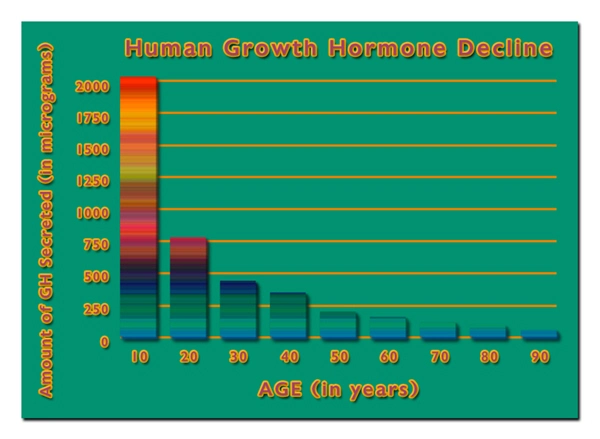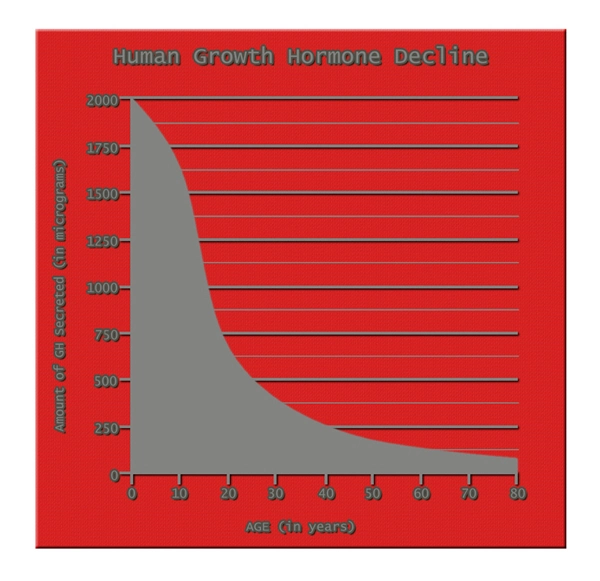 Have you been experiencing increased belly fat as you’ve gotten older? Perhaps once you reached your forties or fifties? Unfortunately, this is the case for many aging men and women.
Have you been experiencing increased belly fat as you’ve gotten older? Perhaps once you reached your forties or fifties? Unfortunately, this is the case for many aging men and women.
As we age, hormone imbalance becomes more prevalent and having extra belly fat, especially, indicates that there is a hormone imbalance taking place.
Video Link: https://vimeo.com/553927028
Video Download: Increased Belly Fat Blame It On Your Hormones
Video Stream: Increased Belly Fat Blame It On Your Hormones
Such hormones include high estrogen, low testosterone, high insulin, high cortisol, and low DHEA. Need a refresher on endocrinology (study of hormones) terms? Let’s take a look at each of these hormones below:
Estrogen — This is one of the two main sex hormones that women have. The other one is progesterone. Men have estrogen as well but in much smaller amounts. Estrogen is what gives women their female physical features and aids in reproduction.
The hormone controls the menstrual cycle, keeps cholesterol in control, and protects our bones in both men and women. Estrogen is what triggers puberty in women as they change from a girl to a woman. If a man has too much estrogen, he tends to have lower testosterone, will lose masculine characteristics, and typically gain body fat, including belly fat.
Testosterone — Testosterone is the “male hormone”, but more specifically is the sex hormone that men produce in much higher amounts than women. It is what triggers puberty in boys, affecting their appearance and beginning sexual development. It also stimulates sperm production and sex drive in both men and women. In addition, testosterone is crucial for the building of muscle and bone mass.
Insulin — Insulin is a peptide hormone that is produced in the pancreas. Its main function is to regulate the metabolism of carbohydrates, fats, and proteins by promoting the absorption of glucose in the blood into various cells. The lack of insulin is what causes diabetes.
The balance of glucose in your blood is very important which is why diabetes is a pretty serious disease. When there’s too much glucose in your bloodstream, insulin signals the body to store excess in the liver. Once blood glucose levels go down, the stored glucose can be released for use.
Cortisol — Cortisol is a steroid hormone that plays a role in many different processes in the human body, such as metabolism and immune response. In addition, it’s a hormone that is released during times of stress. Cortisol levels are elevated when you are suffering from chronic stress, which is not a good thing.
This, alone, can trigger the storage of more fat, especially belly fat. Besides this, cortisol helps to control blood sugar levels, acts as an anti-inflammatory, controls the salt and water balance, and influences blood pressure.
DHEA — Dehydroepiandrosterone (DHEA) is a hormone that is produced in the adrenal glands. It is a precursor to other hormones, mainly testosterone and estrogen. It tends to peak in early adulthood and then slowly decline as we age. This is typical with most of our hormones, actually. If DHEA levels are falling significantly, most likely so will testosterone and estrogen levels.
 Hormones Control Fat Storage
Hormones Control Fat Storage
Belly fat is one of the hardest types of fat to lose and is one of the worst for your health.
The more fat that is built up around the tummy area, the more likely your organs are getting surrounded by fat too. This is very unhealthy and bad!
In addition to the list of hormones above, there are others that affect weight gain and loss: adiponectin and ghrelin. Adiponectin is known as the fat-burning hormone (we need more of these!) and is a protein hormone that regulates the metabolism of lipids (fats) and glucose (sugar).
It also influences the body’s response to insulin and has anti-inflammatory effects as well. Higher levels of adiponectin are correlated with increased fat burning whereas low levels are associated with obesity.
Unfortunately, a bad cycle can be created because once the fat starts to increase, this alone can cause decreased levels of adiponectin.
Ghrelin is known as the “hunger hormone” because it increases one’s appetite and increases fat storage. Ghrelin levels are increased in the body when we fast or when we diet which is why cutting a lot of calories on a diet leads to bounce back and disappointing results. The more you starve your body, the more it wants to store fat.
 Good Sleep Promotes the Loss of Belly Fat
Good Sleep Promotes the Loss of Belly Fat
I know that you’ve heard that getting good sleep is critical for better health, but do you know why? Well, one reason is that losing out on sleep increases cortisol, the stress hormone.
When cortisol is surging, especially after a restless night, our appetite is increased and especially for sugary cravings and junk food. With elevated cortisol levels, the belly fat increases along with insulin imbalances.
If the insulin levels are high, this leads to insulin resistance, and excess carbs are converted to fat and stored in the belly, hips, or thighs. Yuck!
Combat insulin resistance by getting good sleep, staving off junk food cravings, and engaging in regular exercise. Exercise increases insulin sensitivity and counters the effects of stress and high cortisol levels. Getting a good night’s sleep will also boost your metabolism.
Decrease Belly Fat by Consuming Adequate Protein
Another way to control your appetite and decrease belly fat is to increase your protein intake. Eating more protein gets your blood sugar and insulin levels under control and balanced. In addition, protein stimulates the production of adiponectin (the fat-burner!). Watch the belly fat disappear when you consume enough protein and less junk food and sugar.
If you get your hormones tested, which is highly suggested in order to get to the root of your weight issues or other health concerns, and your estrogen levels are high, try adding ground flaxseed and chia seeds to your daily diet. In order to increase testosterone levels, zinc supplements can help raise testosterone, as well as regular weight or strength training.
 Instead of consuming trans fats or unhealthy fats such as potato chips and bread and butter, choose healthy fats instead such as nuts, olive oil, and seeds.
Instead of consuming trans fats or unhealthy fats such as potato chips and bread and butter, choose healthy fats instead such as nuts, olive oil, and seeds.
These fats will not accumulate as much as trans fats will unless eaten in excess. In addition, consider drinking more green tea to boost your adiponectin levels and metabolism.
If you’re experiencing increased belly fat and are sick and tired of it, take our advice and incorporate some of the diet, exercise, and sleep tips mentioned above.
However, the issue lies mainly with your hormones and if you above 40 years old, fixing hormonal imbalance the natural way, might be harder than you think. The first step you should take is getting a comprehensive hormone test that looks at all the hormones mentioned previously, and more!
This comprehensive test gives you an overall picture of your endocrine (hormone) system. Call us today if you have any questions or want to get started right now!

- Live Consciously and Live Better [Last Updated On: January 6th, 2025] [Originally Added On: November 4th, 2020]
- HGH Injections: A New Revolution in Longevity, Health, Medicine, and Life Quality -- HGH Injection [Last Updated On: January 6th, 2025] [Originally Added On: November 10th, 2020]
- The Baby Boomer Dilemma -- To Use, or Not to Use, HGH to Fix Your Lifestyle Mistakes [Last Updated On: February 11th, 2025] [Originally Added On: January 10th, 2021]
- How HGH and Testosterone Can Make a Huge Difference in Your Life [Last Updated On: February 1st, 2025] [Originally Added On: January 11th, 2021]
- 34 Good Health Tips to Improve Your Health and Wellness [Last Updated On: January 30th, 2025] [Originally Added On: January 17th, 2021]
- Personal Human Growth Hormone HGH Testimonial [Last Updated On: January 31st, 2025] [Originally Added On: January 18th, 2021]
- Starting Your HGH Therapy Program [Last Updated On: January 29th, 2025] [Originally Added On: January 26th, 2021]
- Human Growth Hormone for Body Sculpting [Last Updated On: December 30th, 2024] [Originally Added On: January 27th, 2021]
- Human Growth Hormone Replacement Therapy for Men [Last Updated On: November 19th, 2024] [Originally Added On: January 29th, 2021]
- Get Optimal Results on an HRT Program with Proper and Effective Nutrition [Last Updated On: February 17th, 2025] [Originally Added On: February 4th, 2021]
- An Introduction to the Lymphatic System [Last Updated On: January 30th, 2025] [Originally Added On: February 6th, 2021]
- Basic Human Growth Hormone Information [Last Updated On: February 1st, 2025] [Originally Added On: February 11th, 2021]
- Buying HGH Legally. Is HGH legal in the United States ? [Last Updated On: January 31st, 2025] [Originally Added On: February 18th, 2021]
- Zap The Ugly Fat With Human Growth Hormone [Last Updated On: January 28th, 2025] [Originally Added On: February 20th, 2021]
- COVID-19 Global Pandemic: Boosting Your Immune Defense with Growth Hormone [Last Updated On: December 31st, 2024] [Originally Added On: February 24th, 2021]
- Early Exposure to BPAs Can Cause Serious Damage Later in Life for Elderly Men [Last Updated On: November 13th, 2024] [Originally Added On: March 2nd, 2021]
- Ascendis Pharma Given the Go-Ahead by FDA to Develop Long-Acting HGH Treatment [Last Updated On: January 1st, 2025] [Originally Added On: March 4th, 2021]
- Growth Hormone Leads to Liver Regeneration and helps support healing post surgery. [Last Updated On: January 7th, 2025] [Originally Added On: March 5th, 2021]
- Testosterone Levels Main Determining Factor Behind Fracture Risk in Older Men [Last Updated On: March 23rd, 2025] [Originally Added On: April 23rd, 2021]
- Anti-Aging HGH Research of Growth Hormone Injections [Last Updated On: January 29th, 2025] [Originally Added On: April 24th, 2021]
- Anti-Aging News: HGH Shown to Reverse Aging in New Study! [Last Updated On: November 18th, 2024] [Originally Added On: May 4th, 2021]
- Stop Premature Aging Dead in its Tracks with Growth Hormone! [Last Updated On: November 23rd, 2024] [Originally Added On: May 14th, 2021]
- Human Growth Hormone and Cell Regeneration [Last Updated On: January 28th, 2025] [Originally Added On: May 20th, 2021]
- Joe Rogan -- Palumboism Due to Hormone Abuse? [Last Updated On: January 27th, 2025] [Originally Added On: May 22nd, 2021]
- Hormone Therapy May Help Post-Menopausal Women Postpone Onset of Atherosclerosis [Last Updated On: January 27th, 2025] [Originally Added On: May 23rd, 2021]
- If You Suffer From Low-T, You’re More at Risk for Severe COVID-19 Symptoms [Last Updated On: November 24th, 2024] [Originally Added On: May 30th, 2021]
- Hormone Effects:: My Mind Is Racing and I Feel Like I’m Going Crazy - Could Hormones Be the Cause? [Last Updated On: February 20th, 2025] [Originally Added On: August 3rd, 2021]
- Fake News About Hormone Replacement Therapy for Women [Last Updated On: November 12th, 2024] [Originally Added On: September 16th, 2021]
- Overcome HGH Deficiency with Ipamorelin Acetate Injections [Last Updated On: January 14th, 2025] [Originally Added On: September 21st, 2021]
- About to be a Father? How Hormones Will Affect Your Parenting [Last Updated On: April 8th, 2025] [Originally Added On: March 7th, 2022]
- Fighting Off Brain Fog to Think More Clearly [Last Updated On: February 8th, 2025] [Originally Added On: May 30th, 2022]
- HGH Vs. Testosterone: Which One Do You Need? [Last Updated On: October 30th, 2024] [Originally Added On: November 30th, 2022]
- Low HGH Levels Can Lead to Cognitive Impairment [Last Updated On: February 20th, 2025] [Originally Added On: April 12th, 2023]
- The Role of Human Growth Hormone (HGH) and Cognitive Impairment [Last Updated On: February 11th, 2025] [Originally Added On: February 11th, 2025]
- The Impact of Hormones on Mental Health [Last Updated On: February 17th, 2025] [Originally Added On: February 17th, 2025]



List of USA state clinics - click a flag below for blood testing clinics.
Word Count: 1153



















































